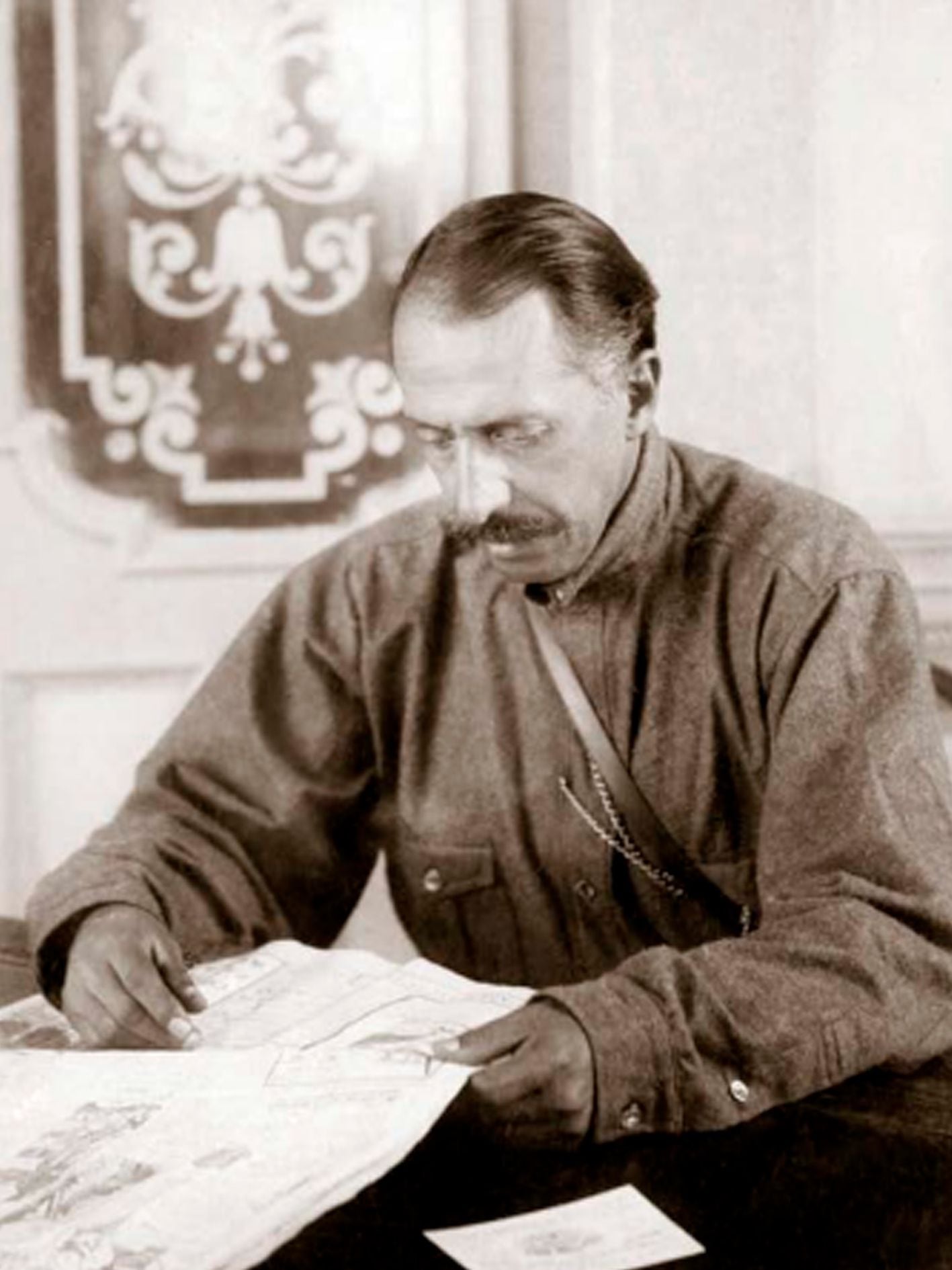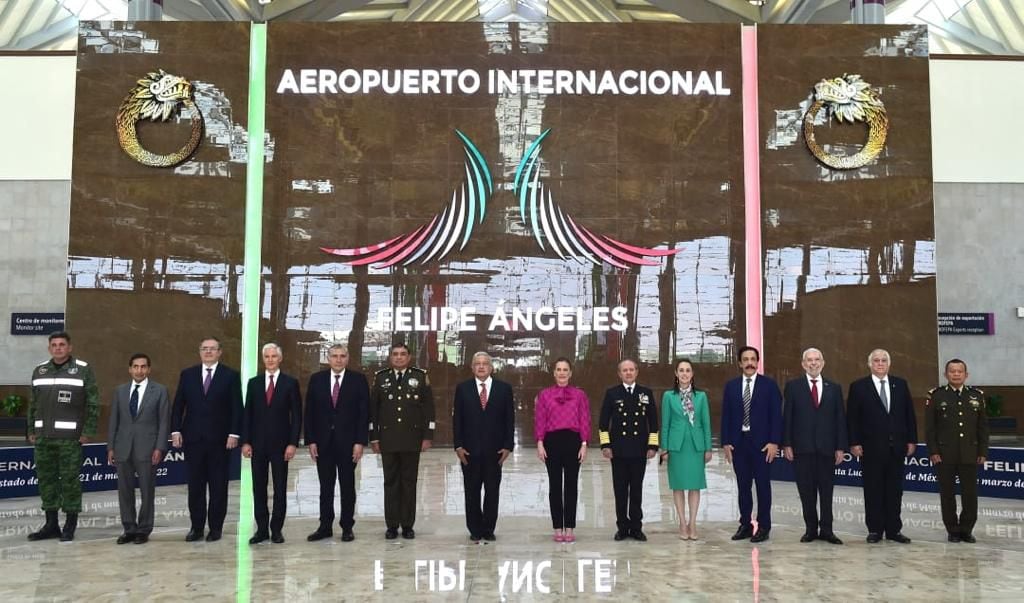
The name Felipe Ángeles was chosen by presidential mandate to give identity to one of the most relevant and controversial projects of the Fourth Transformation and, although the president of Mexico has repeatedly expressed his respect and admiration for the general, his life and contributions to the country are now not only reflected in the books of history but also in this great work that bears his name.
Felipe Ángeles was a highly regarded gunner when the Mexican Revolution broke out. In 1912, under the command of former President Francisco I. Madero, he was ordered to face the forces of Emiliano Zapata in the state of Morelos.
Felipe Ángeles was born on June 13, 1869 in the municipality of Zacualtipán, in the state of Hidalgo. He was the son of Juana Ramirez and Felipe Angeles Melo. His father was a farmer, although he later earned the title of colonel after facing the invasion of the United States in 1847 and that of France in 1862.
At the age of 14, Felipe Ángeles won a scholarship to enter the Military College where he stood out as one of the brightest soldiers. By 1892 he had graduated as Technical Lieutenant of Artillery and in 1905 as lieutenant colonel.
Later, Felipe Ángeles studied in countries such as France and, thanks to the knowledge gained upon returning, he was able to work as a teacher at the same Military College as well as the School for Applicants, the National Preparatory School and the Shooting School, of which he would later be director.

The role that Felipe Ángeles played during the conflict of the Mexican Revolution was crucial to the history of Mexico, as his military prowess accompanied characters such as Francisco I. Madero and Venustiano Carranza.
After fighting the forces of Emiliano Zapata, Felipe Ángeles was arrested along with Francisco I. Madero and José María Pino Suárez, who were executed in the period known as the Decena Tragic. However, General Ángeles was spared his life because of his status as an officer in the Mexican army.
Thus, after a brief exile in Europe, Felipe Ángeles returned to Mexico this time to join the Carrancista forces which sought to overthrow the Victoriano Huerta government. In 1913, Venustiano Carranza appointed him deputy secretary of war and a year later placed him in the service of Francisco Villa as an expert in artillery.
In 1914, Felipe Ángeles arrived in Chihuahua to participate in one of the main military operations of the Mexican Revolution where the so-called Northern Division faced against the federal forces of the Huerta government.
Francisco Villa and Felipe Ángeles were defeated in the battles of León and Celaya, and by 1919 the betrayal of one of their companions caused Felipe Ángeles to be arrested in the Cerro de las Moras in Chihuahua. He was transferred to the state capital to face a trial for rebellion and on November 26 of the same year he was shot.

On March 21, in the vicinity of the Santa Lucia military base, the new Felipe Ángeles International Airport (AIFA) was inaugurated. The star project of the López Obrador administration has been completed after two and a half years of construction and, in this regard, the president premiered together with Epigmenio Ibarra is a documentary that shows the step by step of the construction of this work.
In this audiovisual material, you can see how not only the name of General Felipe Ángeles was placed on the project, but also an imposing statue that was honored by members of the Secretariat of National Defense (SEDENA).
“My General Felipe Ángeles allow me to introduce myself and welcome you, I am General Gustavo Vallejo, general resident engineer of the construction work of this international airport that bears his name, it is an honor to receive him and that it is you who by presidential mandate give identity to this megaproject”, is appreciated in the documentary A People's Work.
In this regard, Andrés Manuel López Obrador recalled the military career of General Felipe Ángeles and even assured that Francisco Villa was the only one who listened. He also commented that when he made the decision to release the son of “El Chapo” in Culiacán, he did so thinking about a famous phrase by the aforementioned character, whom he also described as “exceptional”.
KEEP READING:
Últimas Noticias
Debanhi Escobar: they secured the motel where she was found lifeless in a cistern
Members of the Specialized Prosecutor's Office in Nuevo León secured the Nueva Castilla Motel as part of the investigations into the case

The oldest person in the world died at the age of 119
Kane Tanaka lived in Japan. She was born six months earlier than George Orwell, the same year that the Wright brothers first flew, and Marie Curie became the first woman to win a Nobel Prize

Macabre find in CDMX: they left a body bagged and tied in a taxi
The body was left in the back seats of the car. It was covered with black bags and tied with industrial tape
The eagles of America will face Manchester City in a duel of legends. Here are the details
The top Mexican football champion will play a match with Pep Guardiola's squad in the Lone Star Cup

Why is it good to bring dogs out to know the world when they are puppies
A so-called protection against the spread of diseases threatens the integral development of dogs



